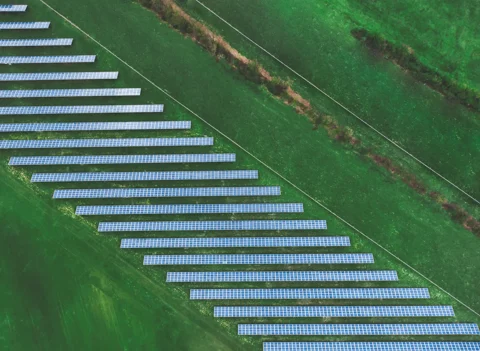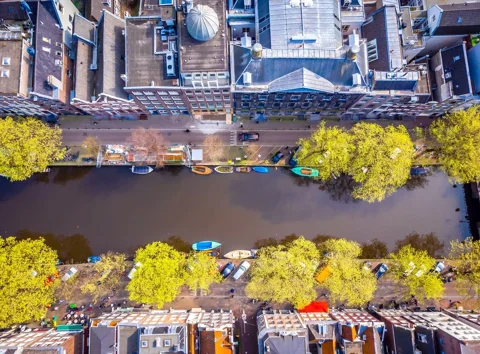For Gijsbert de Lange, the LGBTQIA+ community was a far cry from his own, until two of his three kids came out of the closet. He has since become their “ally” and is happy to share his story with parents who find themselves in a similar situation. “It’s about my kids being happy, not what how I can buttonhole them.”
Last summer, my son Emiel (now 28) came out of the closet as bisexual. That was quite a surprise to me. I had thought he was exclusively into women. A few months later, my -then- daughter (now 24) told me she identifies as non-binary. She is, or rather they are now called Parker. Both kids have since found their place in the LGBTQIA+ community, and I am incredibly happy with the beautiful development we have had as a family.
It still moves me when I talk about it. This is mainly because I am so incredibly proud of our family. Proud of the fact that my children found the courage to tell us and of the way in which we all responded. Not only me, also my wife Mette and my second son Thierry (26). And actually, the whole family and all our friends reacted positively. That is a wonderful feeling, I can’t quite describe how much.
I was surprised, though, when Emiel told me he was bisexual. It isn’t something I had already anticipated. He always seemed like a straight guy to me, occasionally in love with girls and they with him. As a result of what he told me about it, I started to look into it more. And although I knew what bisexuality was, I now realise better what it really means. Being bisexual doesn’t allow you to be easily pigeonholed. You don’t fall 50% for men and 50% for women. Even if he were to have relationships only with women for the rest of his life, that won’t make him straight. Even though I did secretly hope that in the beginning. So that life would be a little easier for him. But in the end, it’s about him being happy, no matter if it’s with a man or a woman.
When Parker came out of the closet as nonbinary, it had more impact. I had to say goodbye to a 24-year-old daughter, a daughter we adopted when she was 2, and whom we had named Carmen. We already knew she was a lesbian; she had had a girlfriend. And she was never a girly-girl with princess dresses and makeup. Romping around in the garden with her elder brothers was much more fun. And suddenly we said goodbye to Carmen and welcomed Parker into our family. Just as wonderful a child as they had always been. Just not a girl anymore. Parker also wants to be addressed and treated as non-binary. The latter takes some getting used to, in practical terms. Sometimes I still talk about ‘she’ and ‘her’. But that just doesn’t fit anymore. It is now “they” and “their”.
My first reaction was to really feel proud of my children. I thought it was great that they had been so brave to come out of the closet. We also received many compliments because we had handled it so well. Of course, I was also worried. I hoped that Emiel and Parker would not get any nasty reactions, for example, or be harassed on the street. Emiel is a big, tough guy, a kickboxer too, who can stand up for himself, but Parker is smaller, more vulnerable. I also immediately realized that it might be more difficult for my kids to find their way to happiness. Society is very much geared to straight people. But aside from those concerns, I had made peace with the situation and, as far as I was concerned, everything had been discussed.
That is, until I delved more deeply into it. Listening to podcasts and watching series like Heartstopper only made me realise what a huge internal struggle they had had. How difficult the whole process they had gone through to find out about their orientation and identity was. The loneliness and confusion they must have felt in the process. This touched me deeply. That’s why a few months after they came out of the closet, I started new conversations with them about it all. We have kept doing that, and I’m still learning every day.
What I learned especially is that the romantic preference you have or your gender identity, can be quite fluid. You can’t stick one permanent label on anyone. It’s more like a sliding scale. Sometimes you can feel more male, other times more female. Or anywhere in between. That can change from day to day. And sometimes you may be attracted toa woman, and other times you fall for a man. That understanding has opened my eyes. Because instead of defining someone as clearly as possible and sticking a label them, you have to respect the fact that they may every day be exploring that themselves. A permanent label does not always fit. And it’s also not needed.
Something else I have thought about a lot, and which I have also asked my kids about, is my own attitude in their youth. Have I always talked about people from the LGBTQIA+ community with respect? What mistakes have I made that made it harder for my kids? I realise now that I have somehow pressured my kids to follow my heterosexual role model. In hindsight, I have ignored signals, closing off avenues for conversation. I also know that I have made inappropriate jokes. At the time, I thought I was allowed to make them because really in my mind I was thinking the right way.
After all, it turned out to be not so bad. I didn’t put a heavy heterosexual stamp on their upbringing, the kids say. But I did make those hurtful jokes, and I can’t take them back. I don’t tell them anymore. I know now that you can hurt people unnecessarily with them. Not only people who belong to the community. Also people who are not out of the closet yet. They don’t dare come out with their orientation because of inappropriate remarks like that.



